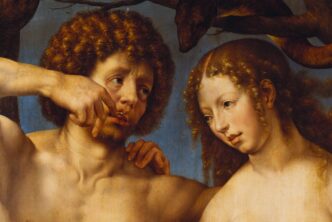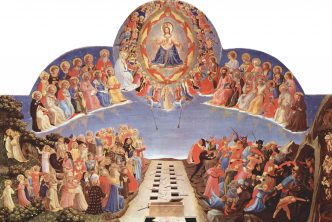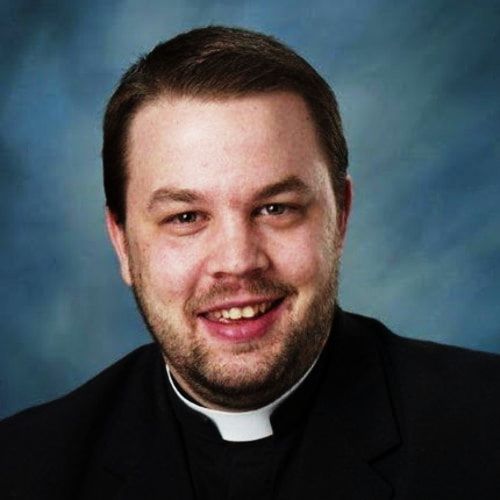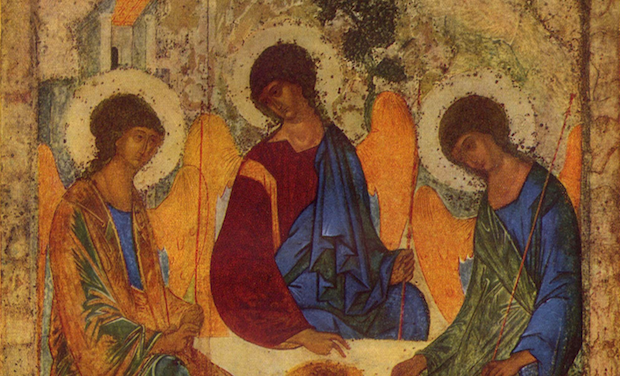
I remember beginning the Ascent of Mount Carmel some three or four years ago—before converting to Catholicism—and thinking something along the lines of, “this is the most profound piece of spiritual literature I’ve ever read.” At the time, I didn’t really think about the fact that St. John of the Cross was Catholic; I just knew that here was a man who understood the soul in a different way. I felt that I was reading a text by a man who truly knew the radical path to union with God.
The axiom guiding all of St. John’s works is that in order for the soul to be filled by God, it must first be completely emptied by plummeting into the depths of detachment from the things of this world. This “dark night of the soul” is dark because the soul must pass through a point where it is bereft of the desire of “all pleasure in all the things of this world.” St. John of the Cross says that “this is as night for every desire and sense of man.” He then says that the darkness is deepened because the soul, in order to accomplish this task, must travel the road of faith, and that “faith is obscure, like night, to the intellect.” Finally, the darkness is made deepest of all because the soul’s goal is union with God—God who is “incomprehensible and infinite, who in this life is as night to the soul.”
I recall being struck by two things when I first started reading St. John of the Cross: First was what appeared to be a close similarity to Buddhist thought. The Buddha taught that the only way for humans to overcome the reality of suffering and unhappiness that surrounds us is to learn to cease desire itself. It seemed to me, as I continued turning the pages of The Ascent to Mount Carmel, that this was something like the position that St. John of the Cross was taking. Second, I was taken aback by the sheer intensity of John of the Cross’ language. He would say things like, “He . . . who loveth anything beside God renders his soul incapable of the Divine union and transformation in God, for the vileness of the created is much less capable of the dignity of the Creator than darkness is of light” (13). I remember being amazed at reading words like, “The whole creation, compared with the infinite Being of God, is nothing; and so the soul whose affections are set on created things is nothing” (14). I think that, for the first time, I truly understood that a life devoted to the imitation of Christ—of uniting ourselves with God in the truest and fullest way—was a life that was full of passion, suffering, and immense strength.
Indeed, the impression one gets from reading the works of St. John of the Cross is that only a spiritual juggernaut could ever hope to accomplish the kinds of ascetic practices and intense forms of devotion depicted therein. But St. John is quick to dispel the despair of the reader who wishes to embark on such a journey but finds it beyond their capability:
The happy lot of the soul, then, consists of being led by God into this night from which so great a blessing results, but into which it could not have entered of itself, because no one is able in his own strength to empty his heart of all desires, so as to draw near unto God.
It is in this sense that the mystical thought of St. John of the Cross differs drastically from the kind of Eastern philosophical thought promulgated especially in the Buddhist tradition. Though The Ascent to Mount Carmel is centered on the principle of self-denunciation, St. John of the Cross makes it clear that the only way that one can ascend to such spiritual perfection is through the external help of God. It is only by Divine Grace that one is able to attain union with God, but we must be willing to receive and cooperate with it. Whereas the Buddha proclaims that the existential problem facing humanity is suffering, and the only way to stop suffering is to stop desire, St. John of the Cross makes it clear that suffering is something that we must go through, but something that we welcome so that we may ultimately find our souls’ true desire.
The Christian tradition is one of finding perfect happiness within the soul in the context of right relationship with its maker. St. John tells us that Christianity is not about seeking suffering for its own sake—nor about trying to run away from it—but about struggling through it for the sake of our own souls. Christianity, thus, is not about ceasing desire, but about rightly ordering our corrupt desires—desires that ultimately lead to unhappiness and death. St. John of the Cross teaches that only when the soul is stripped of its idolatrous attachments can it contain the fullness of God, the ultimate end to which we were created, and enter into true and real happiness.
The works of Saint John of the Cross stretch much deeper than any single blog post can touch, but it is worth meditating—if only shortly—on the profound truth that our souls were created to desire God. St. John teaches us that as it stands, our souls are disordered in such a way that we have made the things of this world our god, and it is only through a dark and painful night that we may wake unto a glorious morning.
This post highlights St. John of the Cross, whose works are included in the Post-Reformation Catholic Thought and Piety collection, available on Community Pricing. This collection—currently priced at only $80 in Community Pricing—would normally cost $500 or more in print. This is a truly rare and special offer, highlighting 27 volumes of some of the most influential and thought-provoking post-Reformation Catholic writing available in the English language.






Hi Aric – I view the Dark Night from a Protestant perspective, but you touch on something I deeply appreciate about Catholic writers (especially St. John) – the point is not to escape the Dark Night, but to allow God to do only what he can do through it.
I have just launched a blog about spiritual dryness (thedrywell.org), and would love to hear your feedback about my page on The Dark Night:
https://www.thedrywell.org/p/the-dark-night.html